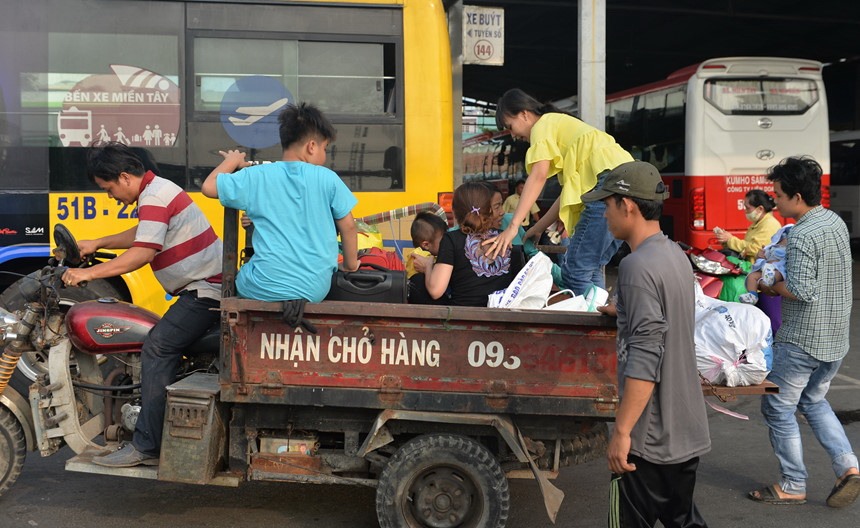 Society
Society

Though HCM City stopped licensing self-modified three- and four-wheeled vehicles 10 years ago, a large number of them remain in use in the city for goods delivery.
 |
| Goods delivery tricycles on Trần Não Street in HCM City’s District 2. — VNS File Photo. |
HCM CITY — Though HCM City stopped licensing self-modified three- and four-wheeled vehicles 10 years ago, a large number of them remain in use in the city for goods delivery.
According to statistics from the city People’s Committee, the city has more than 30,000 motorised and non-motorised self-modified vehicles.
According to Nguyễn Văn Huỳnh Mẫn of Tân Bình District, who owns a tricycle and uses it for transporting goods, a local official once offered him VNĐ5 million to switch to a new job. He rejected it because he though the amount was too low.
But he then borrowed some money from relatives and bought a four-wheeled self-modified vehicle to provide goods transportation services.
It has helped him support his seven-member family and send his children to school.
Tuấn Anh, a tricycle owner on Tô Hiến Thành Street, District 10, said if they want to completely take the vehicles off the roads, they must create other livelihoods for their owners.
“I have to earn enough money to feed my wife and two children.”
According to Đỗ Ngọc Hải, head of the Department of Transport’s transportation management division, the city has mostly banned the vehicles in the downtown area.
They are completely banned on seven streets and are allowed during certain hours on others.
During peak hours, the vehicles are banned on major streets such as the Hà Nội Highway, National Highway 1K, National Highway No 22, and Nguyễn Văn Linh Boulevard.
However, during Tết (the Lunar New Year) recently a number of them violated the ban and drove on these streets.
A spokesman for the traffic police said most of the tricycle drivers could not show appropriate driving licences when stopped by police officers.
However, they find it difficult to seize them because of the large space required to park them, he said.
Besides most of the vehicle owners never return to pay the fine and take them back, he added.
Hải said most of these vehicles do not have papers, making it difficult for authorities to monitor them.
“When the vehicles are confiscated, their owners simply borrow some money to buy a new tricycle.” — VNS




